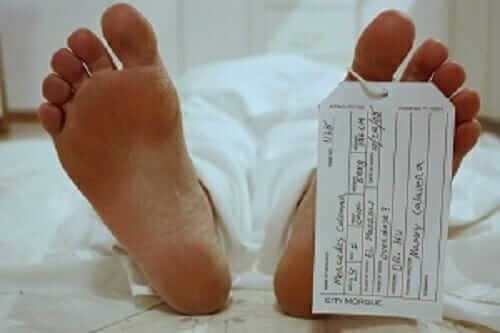I read with interest the recent and important judgment of the Queensland Supreme Court (Re-Floyd [2011] QSC 218). In this matter the Court ordered that the spouse of a deceased was entitled to remove the testes and sperm from the deceased.
The Facts
- The deceased died in a level crossing accident on 12 July 2011 (he was killed by a train).
- The deceased and the applicant were in a de-facto relationship;
- They had planned to marry at the end of the year and had just built a house together;
- The couple had constantly discussed having children together;
- The applicant had made an appointment to visit an obstetrician gynaecologist to discuss having children;
- The applicant told the Court that all the deceased wanted was to have a child and they decided to build a house first because otherwise they would not be able to afford to build a house;
- An urgent application was heard by telephone as the procedure required had to be performed within 24 hours to be effective;
The Law
- Doctors and Coroners (if a death is reportable) have power to authorise the removal of sperm from the deceased person. It is uncertain whether the prior written consent of the deceased (or next of kin) is legally recognised;
- The best prospect is to make an urgent application to the Supreme Court;
- The subsequent use of sperm for in-vitro fertilisation may be considered by the Court as a separate issue;
- If the death is a reportable death under Section 8 (3) (b) of the Coroners Act 2003 (QLD), under Section 24 of the Transplantation and Anatomy Act the Coroner may consent to the removal of the tissue;
- Under Section 23 of the Transplantation and Anatomy Act “a senior available next of kin may … authorise the removal of tissue from the body of a deceased person” … for … medical purposes …”;
- A recent decision of the New South Wales Supreme Court (Jocelyn Edwards; Re-the Estate of the late Mark Edwards [2011] NSWSC478), it was held that “removal of sperm could be regarded as “for medical proposes” where the proposed use is in assisted reproductive treatment”. This assists the authorisation by next of kin;
- As outlined above, if it the death is a reportable death under the Coroners Act, the coroner may give a direction in relation to their consent for the removal of tissue;
- The Court was satisfied, after considering number of authorities, that an appropriate order should be made;
Upon the solicitor for the applicant undertaking to inform the government’s pathology centre in relation to the order, the Court ordered that:
- The Court authorised the removal of the testes and spermatozoa from the deceased;
- The Court authorised the provision of material removed to an IVF Organisation;
- The Court authorised any blood tests advised by the IVF Organisation be carried out;
- The Court authorised the storage of sperm obtained pending a future application for the use of that sperm.
The Queensland government has a helpful fact sheet in relation to these issues which also lists a number of Queensland Supreme Court decisions in relation to the matter.
It is imperative that applications to the Court are made as a matter of absolute urgency. The Court will always be accommodating for applications like this, as they must be made within 24 hours of death. Please do not hesitate to contact me if you have any questions in relation to this particular issue.
The information provided in this article is for general information and educative purposes in summary form on legal topics which is current at the time it is published. The content does not constitute legal advice or recommendations and should not be relied upon as such. Whilst every care has been taken in the preparation of this article, Wills, Estates and Probate Lawyers (WEP Lawyers) cannot accept responsibility for any errors, including those caused by negligence, in the material. We make no representations, statements or warranties about the accuracy or completeness of the information and you should not rely on it. You are advised to make your own independent inquiries regarding the accuracy of any information provided on this website. WEP Lawyers does not guarantee, and accepts no legal responsibility whatsoever arising from or in connection to the accuracy, reliability, currency, correctness or completeness of any material contained in this article. Links to third party websites or articles does not constitute any endorsement or approval of those sites or the owners of those sites. Nothing in this article should be construed as granting any licence or right for you to use that content. You should consult the third party’s terms and conditions of use in relation to any third-party content. WEP Lawyers disclaims all responsibility and all liability (including liability for negligence) for all expenses, losses, damages and costs you might incur as a result of the information being inaccurate or incomplete in any way. Appropriate legal advice should always be obtained in actual situations.


